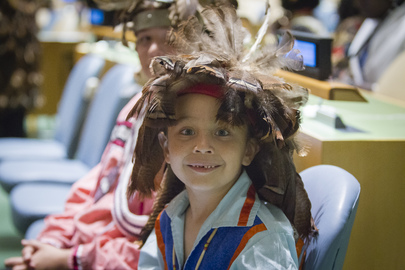Canada, today, became a full supporter of the United Nations Declaration of Rights of Indigenous Peoples reaffirming the countries commitment to adopt and implement the declaration in accordance with the Canadian Constitution.
The U.N. Declaration on the Rights of Indigenous Peoples is a document that describes both individual and collective rights of Indigenous peoples around the world. It offers guidance on cooperative relationships with Indigenous peoples to states, the United Nations, and other international organizations based on the principles of equality, partnership, good faith and mutual respect.
The declaration addresses the rights of Indigenous peoples on issues such as culture; identity; religion; language; health; education; and community.
“Today’s announcement that Canada is now a full supporter of the Declaration, without qualification, is an important step in the vital work of reconciliation,” said Carolyn Bennett, minister of indigenous and northern affairs. “Adopting and implementing the declaration means that we will be breathing life into Section 35 of Canada’s Constitution, which provides a full box of rights for Indigenous peoples.”
RELATED CONTENT
SC says Ottawa has jurisdiction over Indigenous people
Nunavut, Nunavik, rural areas decry slow, unreliable Internet service
Report calls for Inuit involvement in managing Arctic shipping traffic
Bennett, who was in New York, addressed the Permanent Forum on Indigenous Issues at the United Nations. She was leading a delegation which included leaders from the Assembly of First Nations, Native Women’s Association of Canada, Metis National Council, and Inuit Tapiriit Kanatami, according to a report from the CBC.
Minister Carolyn Bennett speaks at #UNPFII15 plenary on Canada's plan to implement #UNDRIP pic.twitter.com/KDHHYF2IqH
— AANDC (@AANDCanada) May 10, 2016
Back in 2010, Canada actually officially endorsed the declaration however the then Conservative government called the declaration an “aspirational document.”
The Web site of the Ministry of Indigenous and Northern Affairs states that a U.N. general assembly declaration is a document “expressing a political commitment on matters of global significance” but is “not legally binding” and are not signed or ratified by states.
But today, the Bennett’s office said the announcement “confirms Canada’s commitment to a renewed, nation-to-nation relationship with Indigenous peoples – a relationship based on recognition of rights, respect, co-operation and partnership.”
The ministry said Canada will work with Indigenous groups on how to implement the principles of the declaration.
“This engagement will include provinces and territories whose cooperation and support is essential to this work and to advancing the vital work of reconciliation with Indigenous peoples in Canada,” a statement from the ministry said.

